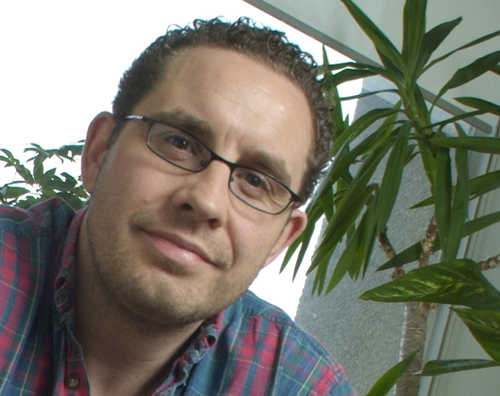
Marijuana use may be becoming more prevalent than tobacco use among young adults, says U of G criminology professor Andrew Hathaway. The finding is based on a pilot study with Guelph students that has triggered funding for a larger research project.
“Close to 80 per cent of the students had some experience with cannabis,” says Hathaway. “That’s significantly higher than tobacco use.” The students also found marijuana use more acceptable than tobacco use.
Hathaway’s study, conducted through online surveys and in-depth interviews with students in a first-year criminology course, asked about their experiences with and attitudes towards marijuana use. His analysis included both those who use cannabis, and those who don’t. “Most drug research doesn’t consider the non-using peers and their perceptions, so I think this is an important addition.”
The pilot study helped to pave the way for an expanded study being funded by the Social Sciences and Humanities Research Council. Hathaway says this new research builds on his past studies looking at the use of cannabis in various populations and understanding the role that drug use plays in society. “We are moving away from the idea that marijuana is used only by a deviant subculture,” he says. “When you look at the patterns of use, and what that means in terms of identity, you get a very different picture. This new study expands on that and considers the normalization of marijuana use.”
If marijuana use is truly becoming normalized in our society, he explains, then the attitudes of non-users should be fairly accepting. That is, in fact, what he found. “Non-users are increasingly accepting of marijuana use in their social groups,” he says. Hathaway also found that there was no clear divide in other characteristics between those who used marijuana and those who didn’t.
He adds that while marijuana does seem to be becoming normalized, the context has become increasingly important. “There is more emphasis among the students we surveyed on behaviour. You’re not considered a loser because you smoke pot, but you’re a loser if you just lie around all day doing nothing but smoking pot. It’s less punitive and more practical,” he says.
During the next phase of his research, Hathaway will be comparing responses to his revised survey and interviews from students attending U of G with a group from the Camrose Campus of the University of Alberta and another group from the University of Toronto. All will be students in first-year courses, as Hathaway is interested in this transitional stage of life, when students are moving from high school to university.
The three locations are also quite different, and he hopes this will allow for interesting comparisons. For example, while both Camrose and Guelph are small, rural communities, Camrose was originally a Lutheran college and the community is known to be very conservative. Guelph is known to be more liberal and tolerant of drug use. Toronto provides a multi-cultural urban environment with students from more varied backgrounds.
Hathaway’s research has found that for some users, marijuana seems to provide real benefits. It may help them relax and sleep, reduce depression and anxiety, or be used instead of alcohol. “Many who use it for medical reasons find cannabis has fewer side effects than prescription drugs,” he says.
Others use it recreationally, and still others have what Hathaway describes as “maladaptive patterns of use.” According to Hathaway’s studies, the various patterns of marijuana use often start at a fairly early age, and most users are clear about what patterns are more harmful.
He hopes that when the full study is completed, his findings will provide a basis for the development of public policy around cannabis use.
“People are more and more aware that the simplistic approach of government is not accurate and does not work,” he says. “The law is a very blunt tool. A public health approach with a focus on harm reduction and the provision of options for treatment and counselling for those who have problems with drug use would be more helpful. It’s better to curtail harmful patterns of use rather than expecting abstinence.”
Similar recommendations have been around for about 40 years but have not been acted on by government, Hathaway adds. He hopes that the data from his study will provide additional evidence to help inform the policy-making process. With a Conservative majority government in place, he recognizes that change may not arrive quickly, but “it’s important to keep adding to the body of research.”